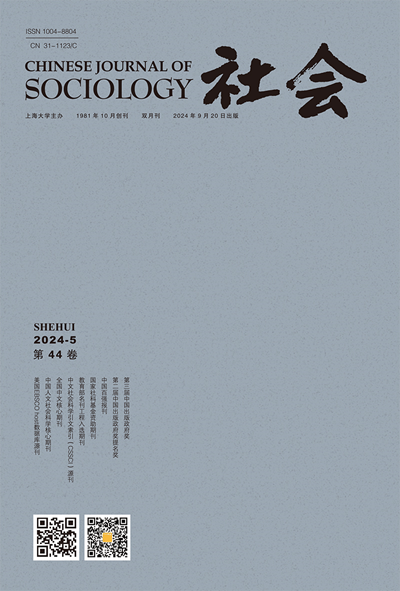Social inequality in child educational development in China
IF 1.8
4区 社会学
Q2 SOCIOLOGY
引用次数: 8
Abstract
Nearly all past studies on educational inequality have examined the relationship between family and children’s educational achievement in western countries. Very few have examined this question in other social contexts, such as China. This article investigates differences in factors that influence children’s development between China and western countries. Capitalizing on recent national representative data, we extend previous studies by using more recent data and considering different measurements of educational outcomes. Our findings show that structural forces, such as hukou and residence, are more important than family and individual characteristics in China for influencing children’s educational outcomes; and that family non-monetary resources such as expectations and parenting practices are more important than family monetary resources such as income, for children’s educational achievement.中国儿童教育发展中的社会不平等
过去几乎所有关于教育不平等的研究都考察了西方国家家庭与儿童教育成就之间的关系。很少有人在其他社会背景下研究过这个问题,比如中国。本文调查了影响中国和西方国家儿童发展因素的差异。利用最近的国家代表性数据,我们通过使用更新的数据并考虑对教育结果的不同测量,扩展了以前的研究。我们的研究结果表明,在中国,户口和居住地等结构性因素对儿童教育结果的影响比家庭和个人特征更重要;对于孩子的教育成就来说,家庭的非货币资源,如期望和育儿实践,比家庭的货币资源(如收入)更重要。
本文章由计算机程序翻译,如有差异,请以英文原文为准。
求助全文
约1分钟内获得全文
求助全文
来源期刊

社会
Social Sciences-Social Sciences (all)
CiteScore
1.70
自引率
0.00%
发文量
6799
期刊介绍:
The Chinese Journal of Sociology is a peer reviewed, international journal with the following standards: 1. The purpose of the Journal is to publish (in the English language) articles, reviews and scholarly comment which have been judged worthy of publication by appropriate specialists and accepted by the University on studies relating to sociology. 2. The Journal will be international in the sense that it will seek, wherever possible, to publish material from authors with an international reputation and articles that are of interest to an international audience. 3. In pursuit of the above the journal shall: (i) draw on and include high quality work from the international community . The Journal shall include work representing the major areas of interest in sociology. (ii) avoid bias in favour of the interests of particular schools or directions of research or particular political or narrow disciplinary objectives to the exclusion of others; (iii) ensure that articles are written in a terminology and style which makes them intelligible, not merely within the context of a particular discipline or abstract mode, but across the domain of relevant disciplines.
 求助内容:
求助内容: 应助结果提醒方式:
应助结果提醒方式:


